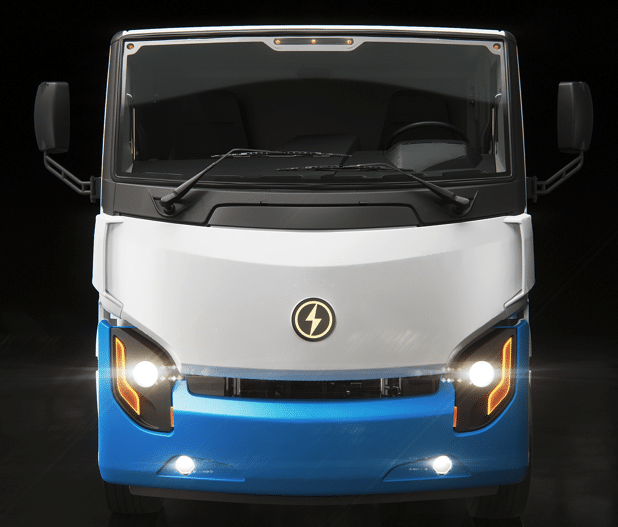Steer clear of Lion Electric, this portfolio manager says

There may be a lot of promise under the hood for The Lion Electric (Lion Electric Stock Quote, Charts, News, Analysts, Financials TSX:LEV) but the risk is too great right now to be worth investors’ money, says Jason Mann of EHP Funds.
“Lion Electric came out of a SPAC and, obviously, SPAC’s have been a very popular vehicle for raising funds then looking for an acquisition,” said Mann, chief investment officer at EHP, speaking on BNN Bloomberg on Friday.
“The stock was one of the high fliers along with other electric vehicle manufacturers back in [the first quarter 2021], but the challenge with a lot of these businesses that have been going public via SPAC’s is they’re not always the greatest businesses. They’re very early stage, they’re growth businesses, which is why they use that vehicle in many circumstances,” he said.
Makers of medium and heavy-duty electric vehicles including trucks and buses, Saint Jerome, Quebec-based Lion Electric was founded in 2008 but it was last November’s announcement of a reverse merger with Northern Genesis Acquisition, a Specialized Purpose Acquisition Company or SPAC, that really brought Lion Electric to investors’ attention. SPAC’s are established with no business of their own and are solely formed to land a big acquisition in hopes of injecting needed funds to grow that acquisition.
In Lion Electric’s case, that meant about $500 million for Lion to pursue its strategic development goals which see the company at its latest update having delivered over 450 vehicles and established an order book for over 2,000 all-electric vehicles, the majority of which are buses and include a purchase order from Student Transportation of Canada for 1,000 school buses.
Speaking of his company’s progress earlier this month in the company’s third quarter press release, CEO and founder Marc Bedard spoke of maintaining what he sees as his company’s first-mover advantage in spite of industry headwinds related to macro supply chain issues.
“Although global supply chain challenges have impacted our ability to manufacture and deliver complete vehicles in Q3, we continued to see strong momentum in the shift to electrification of medium and heavy-duty transports, as evidenced by dialogue with potential customers translating into tangible engagement on multi-year, large scale fleet electrification,” Bedard wrote in a November 10 press release.
But good or bad, Lion Elecric’s public listing via SPAC bears resemblance to last year’s go-public move by US electric vehicle company Nikola Corp, which listed on the NASDAQ in June, 2020, after a reverse merger with SPAC VectolIQ. Nikola’s share price shot up immediately and the stock more than doubled in value with a high percentage of interest from retail investors. Auto-maker GM took an 11 per cent stake in the Nikola a couple of months later just before a short report emerged claiming Nikola founder Trevor Milton had misrepresented the company prior to its public listing in order to drum up interest. Subsequently, Milton resigned and he has been indicted by a US federal grand jury on criminal fraud.
For Nikola, the company said earlier this month that it is likely to pay a $125-million penalty to the US Securities and Exchange Commission in a settlement related to civil fraud charges, while Nikola’s share price is currently at about a third of where it was at its go-public move last June. On the operational end, Nikola said its 2021 output would be 25 electric semitrucks, down from an earlier projection of between 50 and 100, while the company posted a loss of $0.22 per share for its third quarter.
For Mann, the problem with Lion Electric is too early-stage to be a worthwhile investment, and, seeing how far the stock has pulled back — LEV is down about two-thirds this year — it’s not in a good short position either.
“Really there are no earnings to speak of here. The stock price has been weak and it’s come off of a high of just under $35 and is now $11,” Mann said. “So, it’s volatile, it’s declining and there’s no valuation metric. It would definitely not be something that we would want to own.”
“That said, it has probably fallen a bit too far in its timeframe to be a short, so it’s certainly a dangerous stock for someone looking to short sell. These types of stocks tend to get squeezed very easily. So, it’s really no-man’s land for us though. But we would not be buying, frankly, any of these electric vehicle companies at these prices,” he said.
On Lion Electric’s third quarter results, the company posted revenue of $11.9 million compared to $2.6 million a year earlier and an operating loss of $16.4 million compared to a loss of $36.3 million a year ago. Diluted earnings per share were $0.60 compared to a loss of $0.35 per share a year earlier. (All figures in US dollars.)


